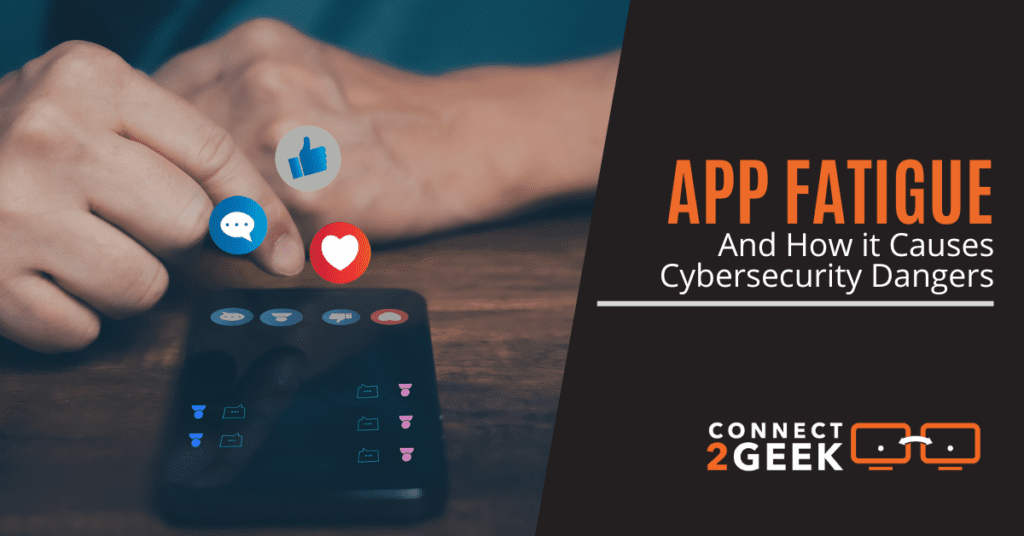
Work and life administration can become more complicated with IoT (Internet of Things) technologies and common electronics like PCs and mobile devices. Innovative technology and apps make every aspect of life more convenient and intelligent, but this may come at the expense of online security and mental health. Such complacency contributes to cybersecurity/app fatigue.
But things are becoming a bit more challenging lately. Presently, there are too many apps online that serve the same purpose. App developers aren’t left out of this app challenge. As app developers create new applications, the number of already created apps and cybersecurity risks increase.
A report by Statista states that, in the third quarter of the previous year, it recorded that about 27.1 billion apps were downloaded via Google Play, on top of about 27.7 billion downloads in the third quarter of 2021. App fatigue has become a big issue.
However, you might not have a deep understanding of app fatigue, and you might think it doesn’t concern you, but with a little overview of the term, you’ll know that almost everyone worldwide is now its victim.
What Exactly is App Fatigue?
The fact that apps have embedded themselves so deeply into our daily life causes app fatigue. Due to the abundance of applications available and their strong presence through notifications, people have begun to grow tired of them rather than getting intrigued.
In other words, when users are no more eager to install or use the latest apps or are becoming too overwhelmed, app developers refer to that as “App Fatigue.” Smartphone users experience it when they have too many applications installed and receive too many notifications, especially when their cellular data is on. Users today lack interest in new applications.
You have probably experienced app fatigue. How frequently, for instance, do you genuinely enjoy a new application that a friend or colleague introduces to you? Or would you install one but purposely disable notifications because you believe there will be too many of them?
Consider how many applications are required to convey the same content or provide the same features as their rivals. Not that many, if you give it a thought.
In essence, many smartphone users already have various applications that meet their daily needs, so they don’t need to explore a new application when the one they currently use serves the same purpose. Thus as stated above, users no longer find apps with outdated and redundant features appealing.
How Does App Fatigue Cause Cybersecurity Issues?
There are tons of alerts and notifications on computers, phones, and tablets, and it’s simple to ignore many of them since they don’t affect what you’re doing right now. Some applications are hardly ever used. Though unintentionally, this behavioral predisposition to ignore alarms could create problems for cybersecurity vulnerability assessment.
As people don’t practice cybersecurity hygiene, more vulnerabilities emerge on the surface area. Sadly, this increases the amount of work analysts must do to conduct remediation and identify the causes of cyberattacks. People desire to use technology less often yet maintain the luxuries it provides.
Although taking a break has advantages, too much technology negligence could offer more excellent openings for new hackers. As technology users grow increasingly weary of the same old security alerts, the probability of cyberattacks rises. Deleting a notification can indicate that you were unaware of a potential threat.
Most houses now have an increasing number of IoT gadgets as internet access becomes essential for employment, education, and even medical appointments. When employees in some industries use about five applications to perform daily tasks but may have as many as fourteen installed. Then, app fatigue becomes inevitable.
People need to strike a balance between spending time on technology and monitoring cybersecurity vulnerability assessments, especially as most people are becoming more concerned about risks as the number of complex gadgets increases. Hackers will exploit this indifference if people don’t meet the demand for enhanced security standards.
Possible Solutions Regarding App Fatigue and Cybersecurity
If you regularly feel frustrated by the sound of notifications you constantly receive on your smartphone or perhaps simply tired of the information you ingest on your smartphone daily, then you must know that those are signs of app fatigue.
Delete any applications that are not extremely necessary for you. You can reinstall them when you need them. Block notifications on applications that constantly beep your home page. Also, don’t just ignore the applications that live up to expectations. You can access your alerts on time using the app frequently.
Employers should review their app stacks to ensure that technological over-optimization isn’t leading to employee stress and burnout. Employees who rely too heavily on apps or technology may doubt its value and engage in careless usage habits, such as disabling security features like MFA (Multi-Factor Authentication) or biometrics. Combining tools will improve operational security while also boosting workplace morale, productivity, and cybersecurity.
No notification should reduce the perceived authenticity of incoming notifications in more critical environments where the risks are higher and the data is private, like banks and hospitals. Spend time focusing on the most vital information to provide to participants so that everyone reads each notification.
To improve cybersecurity, app fatigue must be minimized. Having positive ties with technology promotes diligent security measures and appropriate usage. More technology might be integrated, but there must be a careful balance between behavioral changes and technological adaptability.
Manage Your Applications and Prevent Cyber Threats with Connect2Geek
At Connect2Geek, we offer quick, dependable, trustworthy, and cost-effective IT support. With clients that have been with us for years and over thirty years of cyber experience, Connect2Geek has established itself as the destination for IT help in different sectors.
Contact us today to get the best cybersecurity support!
